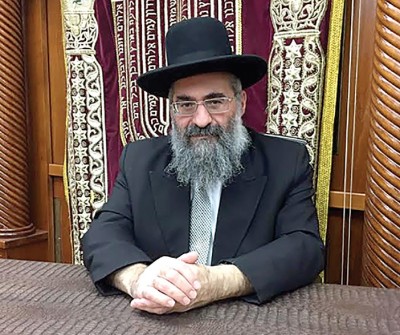
We are currently in the 7 weeks following Tisha B’Av, and also only two short weeks away from Rosh Hashana, which is the day when Hashem Judges the whole world. Our Sages teach us that during this time, we need to reflect very carefully on what it means to do Teshuva as an individual and collectively as a nation as well. We discussed last time the process for doing Teshuva, but now we will talk a little about a sin which every person should strive to erase.
Our sages consider Lashon Hara (wicked speech, tale bearing, character assassination etc.) as the sin most responsible for our current Exile because of the key role it plays in the evil of Sinat Chinam (hatred of a fellow Jew). Sinat Chinam is such a serious sin that it prevents us from experiencing the full Redemption. Working to eradicate Lashon Hara before Rosh Hashana is therefore auspicious for the best Judgment on Rosh Hashana.
Our Rabbis divide speakers of Wicked Speech into two groups: The first group consists of those who sin occasionally. The second group, known as Ba’alei Lashon Hara, consists of those who set themselves up as ‘professional’ talebearers, so that anyone who wants to hear the latest ‘scoop’ knows where to go. The Rambam says that the law regarding the second group is very severe. Anyone who lives next to such a person known as a Ba’al Lashon Hara must relocate.
The Rambam derives the above law from the Mishnaic dictum: “Woe to the evil person and woe to his neighbor (Tractate Sukah 56b)”. The Rambam in Hilchot Deot (6:1) explains this dictum as follows: since it is the nature of a person to learn from his surroundings, it is asur (prohibited) to live next to the wicked. A person should only live next to virtuous people. He takes this principal so far as to direct individuals who cannot find a suitable neighborhood to make home in uninhabited areas such as forests and deserts. Therefore, one who makes himself a Ba’al Lashon Hara is like a curse on his surroundings, banishing the good elements in his proximity that would otherwise be a good influence for him. The law similarly prohibits one from even sitting next to such a person, especially at a time when the Ba’al Lashon Hara is speaking wickedly. Instead one must run away as if from a wild-fire, as we are taught in the verse “Praiseworthy is the one who did not sit with the wicked…” (Psalms 1:1).
Our Sages teach us that it was this sin which doomed the Generation of the Desert, who witnessed the greatest miracles in history as they left Egypt by G-d’s Hand. After the episode of the spies, Hashem commands Moshe to turn away from the land of Israel and instead wander the desert for another 40 years, until every man from the age of 20 and up dies. This was a result of the Spies maligning the land of Israel and misrepresenting its great blessings. The sin of the Spies was so great that our sages question whether or not that generation has a role in the World to Come.
From all the above we see how serious is the sin of Lashon Hara. It can prevent the Redemption, and hold one back from entering the land of Israel. Therefore, if we want to quicken the Geula (final redemption), we need to work specifically against this sin. This means refraining from reporting, fabricating, believing or even listening to negative speech, because not only does the speaker receive a sin, but even the one listening as well.
I would like to bless all of our readers, may we all merit a sweet Judgment on Rosh Hashana, and may this year’s judgment finally usher in the Geula Shelema, Amen v’Amen.
By Adam Suionov
Lashon Hara, Rosh Hashana and the Final Redemption
Typography
- Smaller Small Medium Big Bigger
- Default Helvetica Segoe Georgia Times
- Reading Mode











